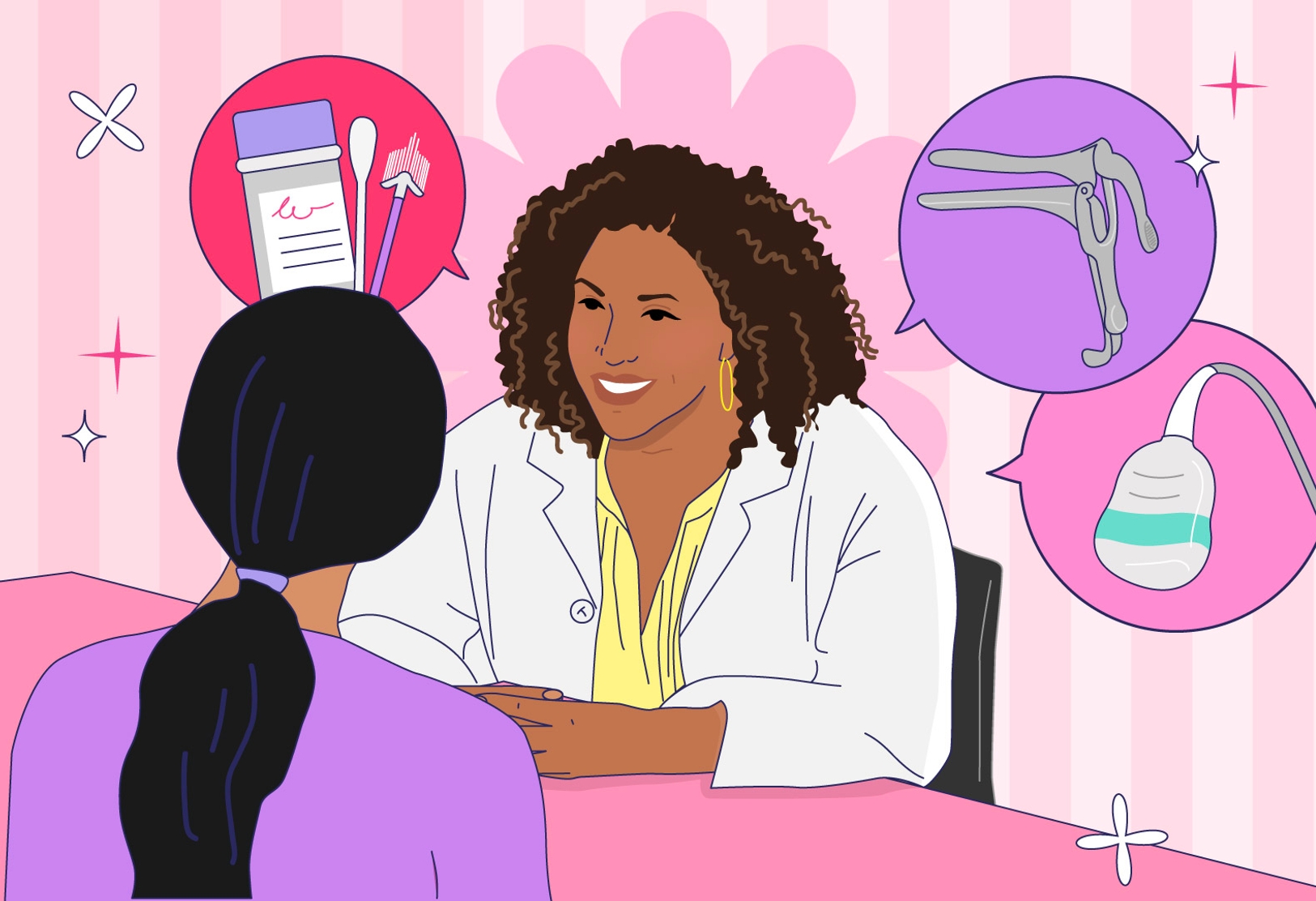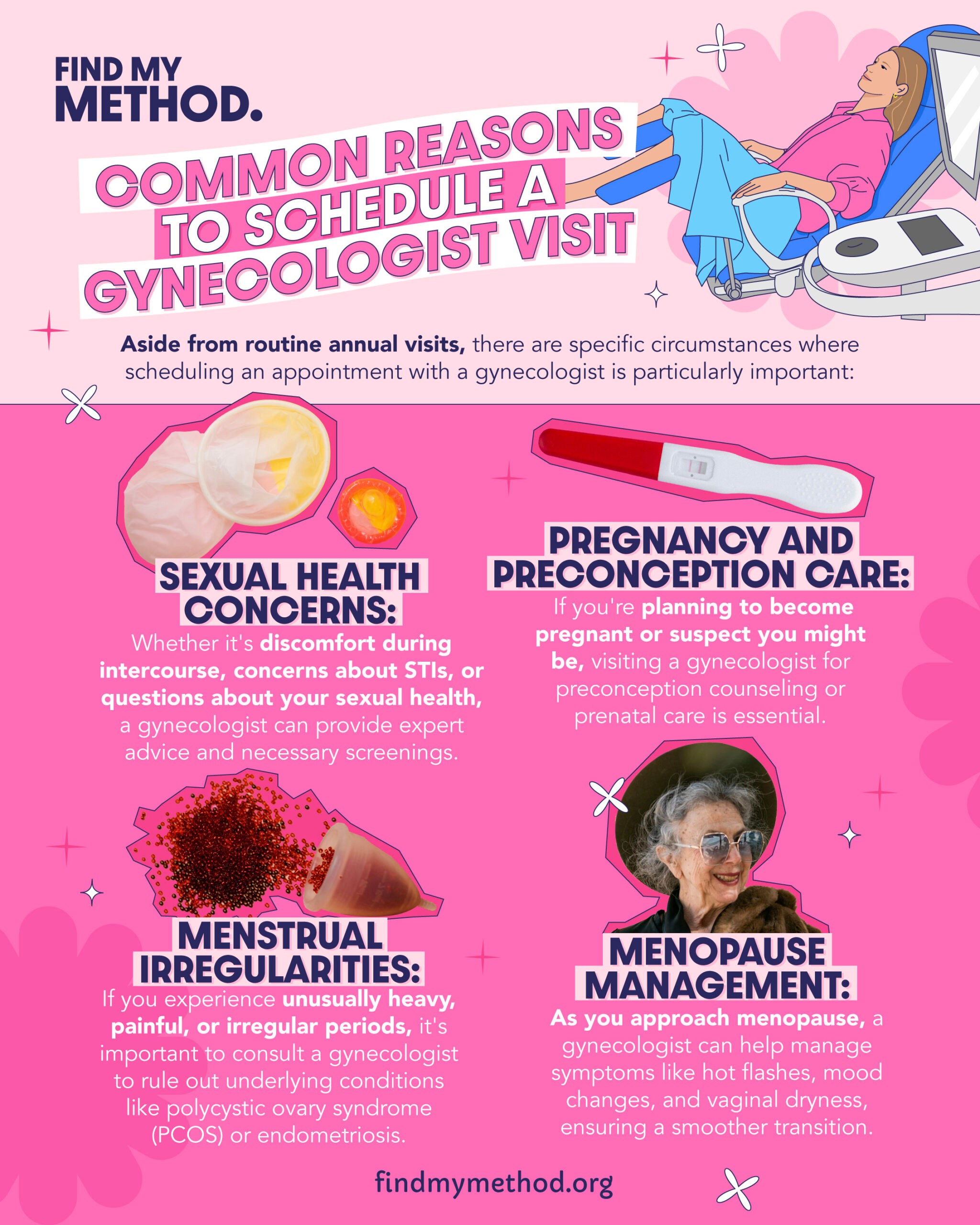For anyone with a uterus, understanding common gynecological procedures is essential for maintaining reproductive health. Whether it’s your first visit or a routine check-up, being informed about what to expect can significantly alleviate anxieties and empower you to take charge of your health. This comprehensive guide will cover when it’s necessary to visit a gynecologist, the most common reasons for consultations, and what to expect during various types of procedures.
When Should You Visit a Gynecologist?
Gynecological care is a crucial component of overall health for anyone with a uterus. Regular visits to a gynecologist help ensure early detection of potential health issues, provide opportunities to discuss reproductive health, and receive personalized advice on contraception and other concerns.
Starting Early: From Menstruation to Adulthood
It is recommended that individuals with a uterus begin visiting a gynecologist from the onset of menstruation, typically in their early teens. This initial visit is often more about establishing a relationship with a healthcare provider, discussing menstrual health, and addressing any early concerns about puberty. Regular annual check-ups should continue throughout life, as they are key to monitoring and maintaining reproductive health.
The Role of the Gynecologist in Sexual Health
Starting to see a gynecologist is also crucial when you begin sexual activity. Your gynecologist can offer guidance on safe sex practices, screen for sexually transmitted infections (STIs), and help you choose the most suitable contraceptive method. If you’re unsure about which birth control option is right for you, a gynecologist can provide detailed information about various methods, helping you make an informed decision.
For more information on birth control options, you can explore this comprehensive guide.
Common Reasons to Schedule a Visit
Aside from routine annual visits, there are specific circumstances where scheduling an appointment with a gynecologist is particularly important:
- Menstrual Irregularities: If you experience unusually heavy, painful, or irregular periods, it’s important to consult a gynecologist to rule out underlying conditions like polycystic ovary syndrome (PCOS) or endometriosis.
- Sexual Health Concerns: Whether it’s discomfort during intercourse, concerns about STIs, or questions about your sexual health, a gynecologist can provide expert advice and necessary screenings.
- Pregnancy and Preconception Care: If you’re planning to become pregnant or suspect you might be, visiting a gynecologist for preconception counseling or prenatal care is essential.
- Menopause Management: As you approach menopause, a gynecologist can help manage symptoms like hot flashes, mood changes, and vaginal dryness, ensuring a smoother transition.
What to Expect During Your Gynecologist Visit
Understanding what happens during a gynecological visit can make the experience less daunting. Here’s a breakdown of what typically occurs during a visit, whether it’s your first time or just another routine check-up:
Initial Consultation
Your visit usually begins with a conversation about your medical history, menstrual cycle, sexual activity, and any concerns or symptoms you may have. This is the time to be open with your gynecologist—no question is too small or too personal. The more information you provide, the better your gynecologist can tailor the care to your specific needs.
Physical Examination
Depending on the reason for your visit, your gynecologist may perform a physical exam. This can include a breast exam to check for lumps or other abnormalities, and a pelvic exam to inspect your reproductive organs. The pelvic exam involves checking the vulva, vagina, cervix, and uterus. A speculum may be used to gently open the vagina for a clearer view of the cervix.
Discussion and Counseling
After the examination, your gynecologist will discuss the findings with you. This is also the time to ask any follow-up questions and discuss your reproductive health in more detail. Whether it’s about menstrual health, contraception, or planning for pregnancy, your gynecologist can offer personalized advice based on your health and lifestyle.
Common Gynecological Procedures
Several procedures are commonly performed during gynecological visits. Knowing what these procedures entail can help you feel more prepared and less anxious.
1. Pap Smear
A Pap smear is a routine screening test for cervical cancer. During the procedure, your gynecologist will gently scrape a small sample of cells from the cervix using a speculum and a brush. The sample is then sent to a lab for analysis. Pap smears are typically recommended every three years for individuals aged 21-65. This procedure is quick and usually painless, though you might feel some mild discomfort.
2. Pelvic Exam
A pelvic exam is a standard part of a gynecological visit. It involves checking the health of the reproductive organs, including the vulva, vagina, cervix, uterus, and ovaries. The gynecologist will examine the external genitalia, and then use a speculum to look inside the vagina and cervix. A bimanual exam, where the doctor feels the size and position of the uterus and ovaries, may also be performed. This exam is important for detecting issues like infections, fibroids, or other abnormalities.
3. Colposcopy
If your Pap smear results are abnormal, your gynecologist may recommend a colposcopy, a more detailed examination of the cervix. During this procedure, the gynecologist uses a colposcope, a special magnifying instrument, to closely examine the cervix for signs of disease. If any suspicious areas are found, a biopsy may be taken for further testing.
4. Ultrasound
An ultrasound is a non-invasive imaging test that uses sound waves to create pictures of the reproductive organs. It’s commonly used to check for conditions such as ovarian cysts, uterine fibroids, or to monitor the health of a pregnancy. There are two types of ultrasounds: abdominal and transvaginal. A transvaginal ultrasound, where the probe is inserted into the vagina, provides a clearer image of the uterus and ovaries.
5. Endometrial Biopsy
An endometrial biopsy involves taking a small tissue sample from the lining of the uterus (endometrium) to check for abnormalities. This procedure is often recommended if you have abnormal uterine bleeding or other symptoms that suggest issues with the endometrium. The biopsy can be slightly uncomfortable, similar to menstrual cramps, but it’s a quick procedure that provides valuable information about uterine health.
Addressing Anxiety and Concerns During Gynecological Visits
It’s completely normal to feel anxious about visiting a gynecologist, especially if it’s your first time or if you’re undergoing a procedure. Here are some strategies to help ease your worries:
1. Recognize That It’s Routine
Gynecologists are trained professionals who perform these exams and procedures regularly. They are there to ensure your reproductive health and provide care in a respectful and non-judgmental manner.
2. Bring Support
Consider bringing a trusted friend or family member to your appointment, especially if it’s your first visit. Having someone with you can provide emotional support and help you feel more at ease.
3. Ask Questions
Don’t hesitate to ask your gynecologist any questions you may have, no matter how small or personal they might seem. Understanding the process can reduce anxiety and make you feel more in control.
4. Find the Right Gynecologist
If you feel uncomfortable with your current gynecologist, it’s okay to seek out another provider. A good gynecologist should be someone who listens, respects your concerns, and makes you feel comfortable. It’s important to have a healthcare provider you trust.
FAQs about Gynecological Visits
1. When should I start seeing a gynecologist?
It’s recommended to start visiting a gynecologist from the onset of menstruation and continue with annual check-ups throughout your life. If you start having sexual intercourse before your first visit, it’s important to see a gynecologist to discuss safe sex practices and contraceptive options.
2. What should I do to prepare for a gynecological visit?
Schedule your visit when you are not on your period, if possible, to make the examination easier. It’s also helpful to write down any questions or concerns you have beforehand so you can discuss them during your appointment.
3. Is it normal to feel anxious about the visit?
Yes, it’s completely normal to feel anxious. Open communication with your gynecologist about your concerns can help ease your worries. Remember, their goal is to help you maintain your health in a comfortable and safe environment.
Need Help? Myka is here to answer your questions
If you have any doubts or need more information about sexual health or contraception, Myka the chatbot is here to help. Myka is a reliable resource for answering questions and providing support whenever you need it.
Click here to chat with Myka the chatbot.
References
- American College of Obstetricians and Gynecologists. (n.d.). Clinical guidelines and standardization of practice to improve outcomes. ACOG. Retrieved from https://www.acog.org
- The Merck Manual Professional Edition. (n.d.). Gynecologic diagnostic tests and procedures. Retrieved from https://www.merckmanuals.com/professional/gynecology-and-obstetrics
- Verywell Health. (2023). 6 common gynecological procedures and surgeries. Retrieved from https://www.verywellhealth.com/common-gynecology-procedures-2616474
- Oxford University Press. (2023). 15 common gynecological procedures and surgery. Retrieved from https://academic.oup.com

